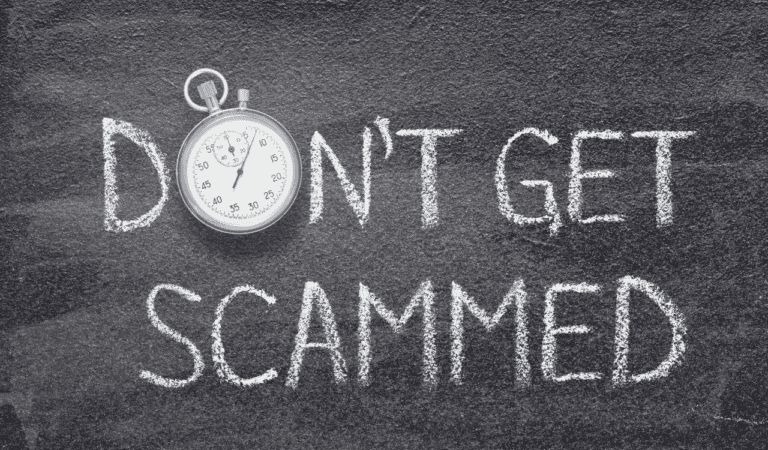How to Sell a Small Business Without a Broker
[Disclosure: this post may contain affiliate links, this means I get a commission if you decide to make a purchase through my links. This is at no cost to you. Please read my disclosure information for more details.]
Small businesses are one of the most traded entities on the market since they are in the developing stages. Traditionally, brokers have been the main route for trading small businesses. However, they charge a large chunk of the sales proceeds as an agent fee, defeating the purpose of selling the small business.
For context, brokers can charge about 10% – 15% of the proceeds. As a result, you’ll have to spend thousands of dollars just to earn a few bucks from the transaction.
For this reason, many business owners opt to sell their small businesses without a broker. Thankfully, selling them is straightforward, provided you follow the proper steps. This guide shows you the step-by-step process of selling a small business.
How to Sell Your Small Business Without a Broker
The selling process for a small business is not that hectic. The fact that you’re selling your small business without a broker does not mean you won’t need professional help. You must contact experts in some areas, such as preparing the transfer documents and business accounts.
Here is the step by step-by-step procedure:
- Make your small business sellable
- Hire an accountant and lawyer
- Get a market valuation
- Prepare the necessary documents
- Keep everything confidential
- Source interested potential buyers
- Shortlist qualifying buyers
- Perform due diligence
- Don’t waste time – close the deal
- Remember after-sales service
Here’s what you should do at each step in detail:
1. Make Your Small Business Sellable
Most business owners need to pay more attention to this step when selling their business. Every buyer is looking at two basic things – is your small business profitable, and how does buying it affect them negatively?
As a result, you must convince potential buyers that your business is worth their hard-earned dollars. Most buyers will make a small offer, so you’ve to prove your business is worth more.
Focus on growing the company’s existing customer base. A strong market hold shows buyers that your business has steady revenue. In addition, take an inventory of any equipment and appliances related to your business. Fix or replace damaged ones and ensure everything is in order.
Projecting the company’s future potential as a reason for a high bid price is one big mistake business owners make.
Sadly, most buyers will shy away from a business that does not make a profit. In addition, they only care a little about future earnings, as it will only help them cover acquisition costs later.
2. Hire an Accountant and Lawyer
You might make a good sale listing for your business or tell friends you’ve got an offer. However, you need professionals for some tasks – even if you’re selling your small business yourself. These include an accountant and a lawyer.
Potential buyers will look at business documents like balance sheets, income statements, inventories, marketing plans, customer lists, and cash flow for the past five years.
In addition, you should also show buyers any contracts you’ve signed with suppliers, vendors, and employees. A lawyer helps you prepare legal documents, which speeds up the sales process. In addition, you’ll also have more time for the marketing parts of the sales process.
Getting an accountant ensures you adequately capture all necessary financial details buyers use when making offers. In addition, a lawyer advises you on steps you should take at each stage and ensures that you include any tax returns resulting from the sale in the financial statements.
3. Get a Market Evaluation
A market valuation is an amount you feel your small business is worth – given the current socio-economic conditions.
Getting one is challenging since people easily overvalue their companies. So, many sellers hire a business appraiser to generate random figures. Unfortunately, these figures from a business appraiser do not accurately portray your business since you know your business best. Hence, the best market evaluation is the one you made yourself.
Rate your business based on the profits it makes. A good rule is 2-7 times the current profit based on the customer base. Avoid looking at future potentials, as the business may not perform optimally after changing hands.
Add a margin to stay covered if the buyer bids lower than the sale price. Lastly, back your valuation with your marketing plans and customer market share.
4. Prepare the Necessary Documents
Get the necessary documents from your lawyer and accountant. Also, go through them and crosscheck for any errors. You may require some explanations, so you can effectively prepare your pitch. Make sure everything is ready before listing your business for sale.
5. Keep Everything Confidential
Refrain from releasing info about your sales plans. Keep your ears open for buyers but don’t make your documents public.
This part is crucial, so you don’t create market fright and scare away customers. Hence, you will not devalue your business in the market before potential buyers make offers. You can also ask your lawyer for advice before releasing any information.
6. Source Interested Potential Buyers
Getting potential buyers for your small business is easy if you know where to look. For example, friends, family relatives, business partners, or competitors are a good start. One advantage small businesses have over other companies is that someone is willing to acquire them.
Keep all your options open and write down people likely to buy your business.
7. Shortlist Qualifying Buyers
Most times, many people will express interest in your business. Some may keep bugging your line with phone calls. However, only some are committed to making the purchase.
How do you know who’s interested in buying your business? Two things are involved. First, get your potential buyers to submit their financial statements. This way, you’ll know if they can meet your market valuation and buy your business.
Also, ask your lawyer to prepare a Letter of Intent (LOI) for all the buyers that meet the financial requirements. This agreement helps you know who’s genuinely interested in purchasing the business.
Ensure that you give the Letter of Intent to 2 – 4 buyers that meet the financial requirement, so you don’t put all your eggs in one basket.
8. Perform Due Diligence
This part involves both parties. Get potential buyers to sign a binding agreement (NDA) that prevents them from disclosing the sale details to outsiders. After they’ve signed it, send the market valuation and offer them your bidding price. Provide the cash inflow, balance sheet, and other accounts at request.
At this stage, you must follow up constantly and get feedback from all buyers. See how they react to your bidding price. In addition, ensure your lawyer is involved in this stage.
9. Don’t Waste Time – Close the Deal
Once you’ve got a deal that satisfies your requirements, close it. Ensure all parts of the sales contract are crystal clear, so the buyer knows their duties and obligations as regards the sales.
Furthermore, your lawyer should prepare all necessary documents for the business transfer and acquisition and get them signed once the deal is closed.
The final bid price may not reach the market valuation, but it should be the best offer possible.
10. Remember After-Sales Service
Some sales require that you manage the business for a specific time while the new owners get accustomed to the business model.
Others may need assistance with some issues from time to time. Ensure you’re available and offer help when necessary – especially if it is part of the sales contract. You should also make your lawyer available for legal issues if that’s part of the deal.
Wrapping Up
Many wonder how to sell a small business without a broker and if it’s possible. The answer is yes. Not only will selling your small business by yourself save you money, but it also ensures you learn the process – in case you want to sell another business again.
The steps here ensure selling your business is as smooth as butter and that you get the most profit from the sale. Ensure you follow them religiously.







